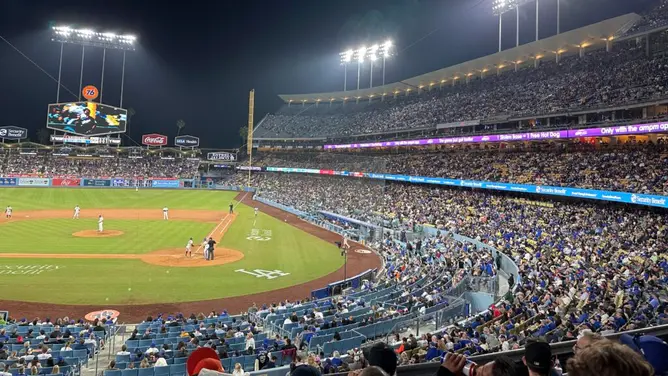LA May Give Reparations For Residents Displaced By Dodger Stadium Construction
Los Angeles is now one of the most ridiculous cities in the country, located in perhaps the most ridiculous state in the country, and a proposed new bill is a fantastic indication as to why.
READ: LA Times Very Confused Why Republicans Make Fun Of California
When Dodger Stadium was built in the late 1950's and early 1960's, city leadership bought the properties of residents in Chavez Ravine, with the expectation that it would be used for future housing. That housing was jettisoned in favor of a plan to build Dodger Stadium. LA voters then sided with the Dodgers and the city to construct the stadium, with a majority of locals approving plans to construct it at its current site.
But in a state with tens of billions in deficits, and a city that's facing a nearly $300 million revenue shortfall, it's no surprise that local and state politicians are focused on one thing: spending more money they don't have.
State leadership is currently considering a bill that would require the city of Los Angeles to explore providing reparations to the families and descendants of former residents of Chavez Ravine. According to the local LA assemblywoman who proposed the bill, it's "offering a path toward historical accountability, reparative measures, and a permanent memorial."
The bill though, would also require LA to create a task force to determine how to compensate the families through giving them city-owned land, as well as market rate compensation, inflation adjusted no less, for the value they lost.
Makes sense.

Dodger Stadium during a game against the San Francisco Giants in 2023. (Ian Miller)
California Leadership Always Focused On Fixing Key Problems
Instead of focusing on solving problems currently facing Los Angeles and California at large, local politicians are instead, unsurprisingly, virtue signaling about the past.
While the bill wouldn't require the Dodgers to pay the families who were displaced, the current value of the land, or the tax-free gift of new land would cost the city hundreds of millions of dollars that it doesn't have.
Does that matter to an ideology that believes in "restorative justice?" Of course not.
In theory, it should be hard to imagine that this is what local politicians are spending their time on. But when you see the politicians that Los Angeles and California voters elect, nothing makes more sense.